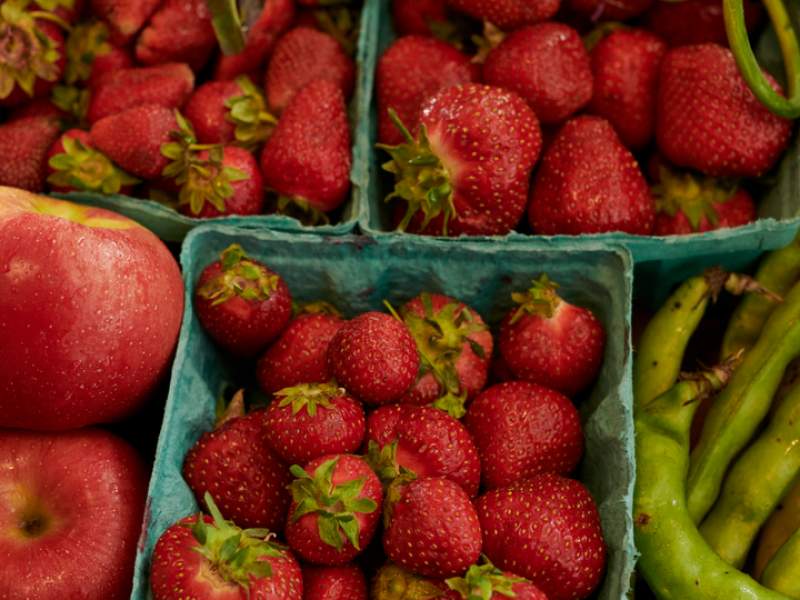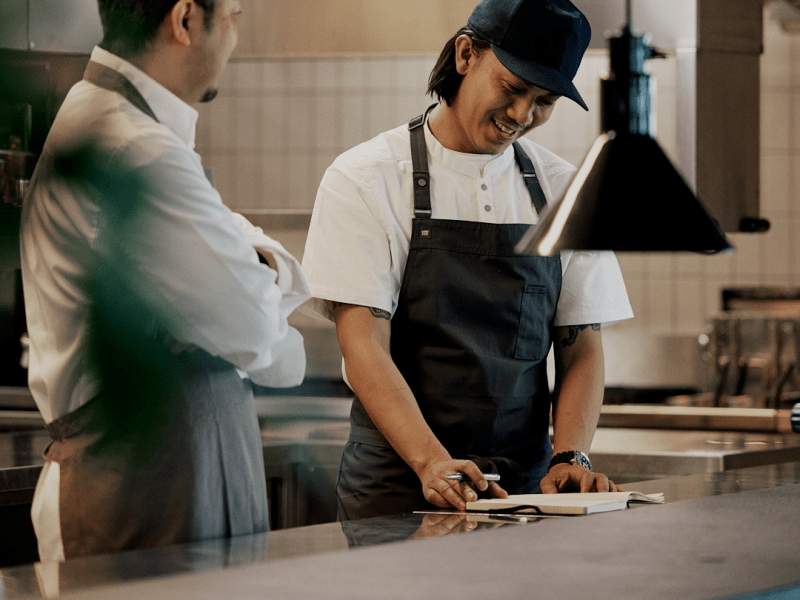Alimento para o pensamento
À medida que entramos numa nova estação, damos as boas-vindas a uma nova colheita de produtos sazonais de inverno para incendiar novos sabores e inspiração nos nossos paladares e nos nossos pratos. Desde os frutos frescos das maçãs, arandos, pêras e castanhas a um espetro de vegetais coloridos pela abóbora, beterraba, couve, couve-de-bruxelas e alcachofras de Jerusalém, aproveitamos um momento para reforçar a importância do localismo e da sazonalidade, olhando para o alto das montanhas da Coreia para refletir sobre os valores definidos pela cozinha de templo coreana.

Muito antes de Alice Waters ter dado o pontapé de saída para o movimento "slow food" na América, antes de os chefes de cozinha de Noma terem dado destaque à comida colhida, e muito antes de "farm-to-table" e "locavore" terem entrado na moda e fazerem parte do vocabulário do norte-americano médio, gerações de mestres desconhecidos estavam a aperfeiçoar as técnicas de fermentação, desidratação e colheita de alimentos com uma honestidade inigualável, no refúgio silencioso dos templos de toda a Coreia.
A culinária dos templos coreanos existe há aproximadamente 1.600 anos, desde a fundação do templo Jinkwansa, e está enraizada em alguns princípios simples que all ao conceito budista de desapego. all os ingredientes e refeições all são elaborados com elegância e abundância para servir à saúde e serem consumidos em porções adequadas como fonte de clareza mental e física – uma linhagem de meditação. Entre os muitos budistas zen que praticam esta arte, destacamos Jeong Kwan, uma freira que reside no eremitério Chunjinam do templo Baekyangsa, 272 km a sul de Seul, que recentemente chamou a atenção de alguns dos mais renomados líderes internacionais da gastronomia e tem sido comparada a chefs como Michel Bras e Alain Passard, Dan Marber e David Kinch, René Redzepi e outros.
Kwan acredita que "a melhor cozinha - a cozinha que é melhor para o nosso corpo e mais deliciosa para o nosso paladar - vem desta ligação íntima com frutas e vegetais, ervas e feijões, cogumelos e grãos. Na sua opinião, não deve haver distância entre um cozinheiro e os seus ingredientes.
Quer leve a generosidade do inverno para estados de saladas de inverno ou sopas quentes, deixamos-lhe as palavras profundamente simples de Jeong para levar para a sua vida quotidiana e para as suas refeições nesta estação, enquanto pratica a cozinha local e sazonal:
"Deixa a natureza tratar disso." - Jeong Kwan.












